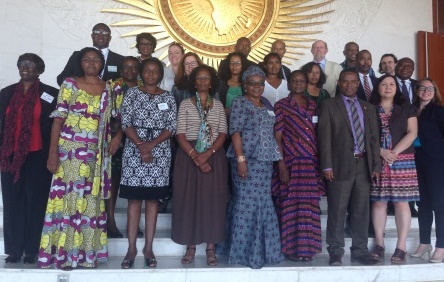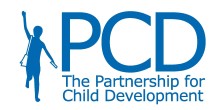Resource Bank  News
News  School health and school feeding experts convene at African Union for Round Table
School health and school feeding experts convene at African Union for Round Table
 News
News  School health and school feeding experts convene at African Union for Round Table
School health and school feeding experts convene at African Union for Round Table
 Leading school health and school feeding experts convened at the African Union in Addis Ababa on the 7th and 8th March to discuss child and adolescent health and document the role of school feeding and school health, in tackling food security and breaking intergenerational poverty.
Leading school health and school feeding experts convened at the African Union in Addis Ababa on the 7th and 8th March to discuss child and adolescent health and document the role of school feeding and school health, in tackling food security and breaking intergenerational poverty. Findings from this meeting will be published in a volume on Child and Adolescent Development in the third Edition of Disease Control Priorities due out later this year. Published once a decade, Disease Control Priorities is the pre-eminent publication in the field of public health and brings together evidence to evaluates the most pressing conditions and diseases contributing to the global burden of disease and most effective treatment programmes for them.
Convened by the Partnership for Child Development (PCD) and the New Partnership for Africa’s Development (NEPAD) the round table included representation from national and state governments including Ethiopia, Ghana, Mali and Kenya; United Nations agencies (WFP, FAO and UNICEF); The World Bank, Civil society organisations and academic institutions.
Dr Lesley Drake, Executive Director of the Partnership for Child Development ‘ The evidence from governments and partners is that school feeding is a child focused investment that can make a real difference in breaking the cycle of poverty by bringing children into school. This is especially true when it is integrated with other school health focused interventions such as deworming, hygiene and sanitation. “
The meeting will produce a number of background papers and case studies demonstrating how these school feeding and school health programmes have been strengthened and scaled-up sustainably as well as providing a model for how school health programs can be brought to scale in other developing countries.
The Round table is part of a busy week for school health and nutrition stakeholders in Addis Ababa with the launch by Dr. Tilaye Gete, Minister for General Education, of Ethiopia's 5year school health and nutrition strategy and the hosting of a two day Systems Approach for Better Education Results (SABER) workshop. The SABER exercise brought together representatives from the Ministries of Education and Health in Ethiopia identify ways to strengthen the countries school health and nutrition policies and programmes.



